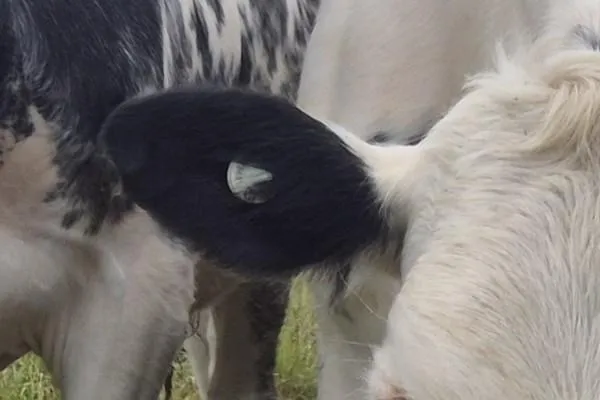
Bovine Tuberculosis (Tb)
If you keep cattle or deer on your lifestyle block, even just one or two animals, you must meet the legal requirements of New Zealand’s TBfree Programme. These rules help control and eradicate bovine tuberculosis (TB), a serious disease that affects both animal health and the economy.
What is Bovine TB?
Bovine tuberculosis is a chronic bacterial disease that mainly affects the lungs and lymph nodes of cattle and deer. It can be fatal and poses a major biosecurity risk. TB is of particular concern in New Zealand because of the threat it poses to our meat and dairy export markets.
How TB Spreads
In New Zealand, the primary ways TB spreads are:
From infected wildlife such as possums and ferrets.
Via animal movements, bringing infected cattle or deer into a healthy herd.
Legal Requirements for Lifestyle Block Owners
If you keep cattle or deer, you are legally required to follow TBfree guidelines. These include:
1. NAIT Registration and Animal Identification
All cattle and deer must be registered in the NAIT system (National Animal Identification and Tracing) and tagged with a NAIT-approved RFID ear tag.
Animals must be tagged within 180 days of birth or before leaving the property, whichever comes first.
NAIT tags can be purchased from most rural supply stores such as PGG Wrightson or Farmlands.
Once tagged, a NAIT tag must not be removed without NAIT’s approval.
Un-tagged animals cannot legally be moved between properties.
Learn more or register with NAIT at ospri.co.nz.
2. TB Testing
Once you are registered with NAIT, a local TBfree technician will manage testing on your property.
New in 2025
Previously, testing frequency was based mainly on the TB risk level in your Disease Control Area (DCA). With infection rates now very low, OSPRI is shifting to a targeted approach. Farms are assessed individually, and testing is prioritised if risk factors are present, such as:
Frequent livestock movements on or off the property.
Animals arriving from high-risk TB areas or herds under movement control.
Incomplete or poor-quality NAIT livestock movement records.
Some farms may be tested sooner than expected after their last whole-herd test, while low-risk herds may be monitored mainly through slaughter surveillance.
If an animal reacts to a TB test, it may:
Be re-tested.
Be directed for slaughter, depending on the risk zone.
3. TB Status and Movement Restrictions
Every herd has a TB status:
Clear – no evidence of infection.
Infected – confirmed presence of TB.
Suspended – status under review, often after missing testing.
Your herd’s status affects:
How often your animals must be tested.
Whether animals can be moved or sold.
If you are in a Movement Control Area (MCA), additional rules apply:
Animals must be TB tested within 60 days before moving to another property.
Animals moving directly to slaughter do not need a TB test.
Animals in infected or suspended herds must always be tested before moving.
4. Animal Status Declaration (ASD) Forms
All cattle and deer movements must be accompanied by an Animal Status Declaration (ASD) form, which details ownership and health history. These forms are mandatory under New Zealand law.
New in 2025
MPI introduced an updated ASD form on 3 June to meet new veterinary medicine regulations from the European Union. The latest form can be completed in several ways:
Use the updated eASD online form via OSPRI’s portal for cattle or deer leaving your farm (except to sale yards).
Download the updated PDF and complete it by hand.
Order a book of updated paper forms from ospri.co.nz/order-asd.
Always complete ASD forms accurately, including the latest TB test results, and keep received forms for at least six months.
For more detail on tagging, movement reporting, and NAIT requirements, see our Update on NAIT guide.
5. Buying Livestock
When purchasing animals:
Only buy cattle or deer with a valid NAIT tag and ASD form.
Confirm the NAIT movement has been recorded to your property.
Do not accept animals that do not meet these requirements, it is illegal.
Summary: Your TBfree Responsibilities
If you keep cattle or deer, here is what you need to do:
Tag your animals with a NAIT-approved RFID tag within 180 days of birth or before the animal leaves your property, whichever comes first.
Register with NAIT and record all cattle and deer movements through the system.
Use the updated ASD form for every movement of cattle or deer off your property. Keep copies for at least six months.
Follow TB testing requirements as advised by your local TBfree technician, noting that testing may now be targeted based on farm risk factors.
If buying livestock, only accept animals that are NAIT-tagged and accompanied by a completed ASD form. Confirm the transfer has been recorded in NAIT before the animals arrive.
If you are in a Movement Control Area, animals must be tested for TB within 60 days of moving. Additional rules apply if your herd is classified as infected or suspended.
Following these rules helps protect your livestock, your livelihood, and New Zealand’s broader farming community.
Final reminder
The friendly neighbour who gives or sells you an unregistered calf might mean well, but they’re handing you a legal nightmare. No NAIT tag, no ASD form, and no recorded movement means you’re carrying the risk, both financially and legally.

